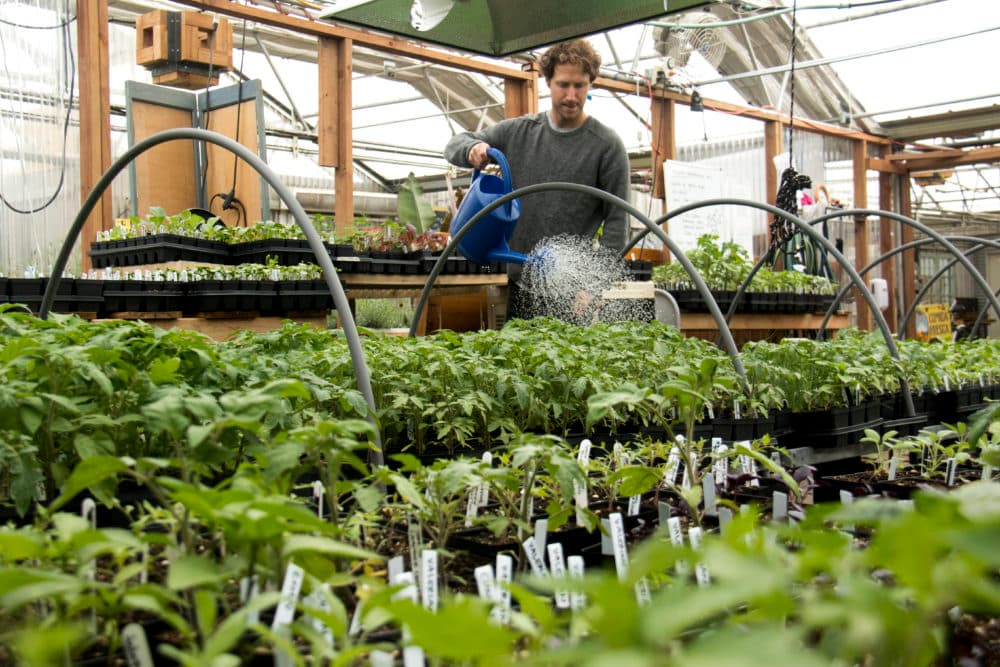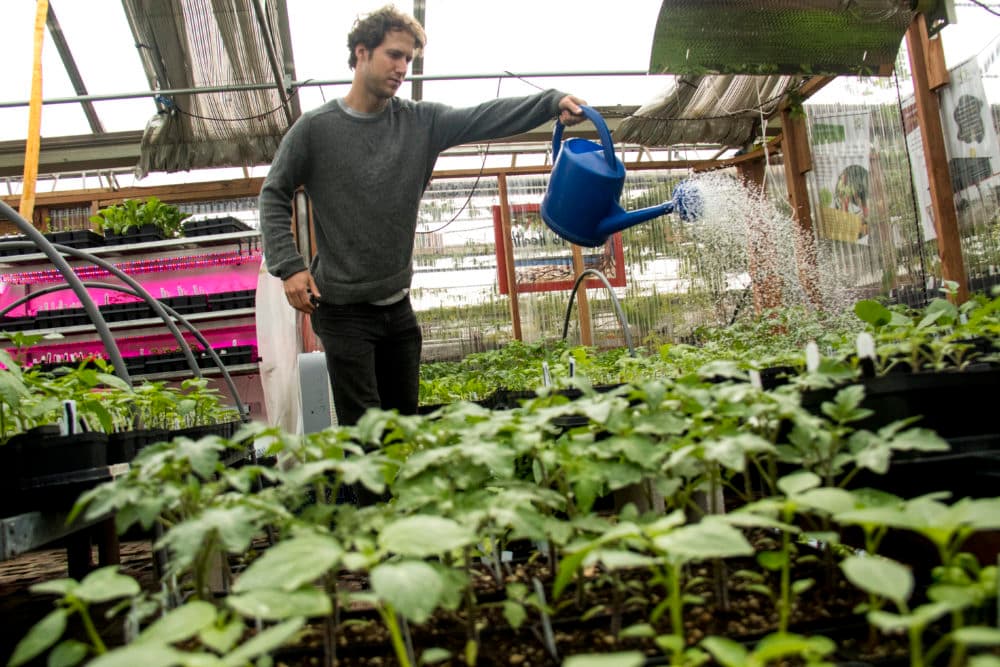
Mayor Michael Hancock says it's a priority to get a grocery store in Denver's Globeville, Elyria-Swansea, Westwood and Montbello neighborhoods.
His Office 0f Economic Development has even gone as far as to set $3 million aside to fulfill that purpose. But so far no supermarkets have announced plans to enter the food deserts, leaving organizations like The GrowHaus to fill the gaps.
When GrowHaus started selling apples, zucchini and other produce in 2013, the nonprofit didn't plan to expand its selection to include meats, grains and even some non-food items. Demand from residents in the Globeville and Elyria-Swansea neighborhoods and the lack of a nearby full-service grocery store quickly pushed the organization to change its thinking.
"What the community really needs is a large quantity of food and that takes a lot of space and storage. We don't have the space on site for that," said Kayla Birdsong, director of operations and soon-to-be interim executive director of GrowHaus.
"We're still working to find and bring together the kind of partnerships that are required for full-service grocers to locate in and around Denver," said Blake Angelo, manager of food system development for the city.
The money's tripled, but it might not be enough.
The city's new push to get the community in northeast Denver a grocery store ramped up last year with the "Healthy Food Challenge." The challenge gave the city $1 million to act as gap financing and help attract a store. Another $250,000 was geared toward supporting healthy food providers and organizations in the community. The GrowHaus was awarded $66,213 through the program.
"The money is a small part of the toolset, but it is not enough to drive the investment for most retailers," Angelo said. "It likely costs millions of dollars to get one of these things really open."
This year Denver's expanded its effort, putting $3 million to help get a grocery store in Globeville and Elyria-Swansea, Westwood and Montbello. The city's gone as far to declare in its annual economic plan that it plans for construction on a grocery store in Montbello to start sometime this year.
"We've got land. We've got operators who are interested. We've got funders who are interested. We certainly have consumers who are interested," Angelo said. "The challenge has been getting all those pieces in play together in the same geography at the same time."
The city is targeting food deserts, where a large number of low-income residents are at least a mile away from a supermarket.
"A lot of communities are considered food deserts, but many of them are actually what we call 'food swamps' where you have a lot of fast food and no grocery outlet in the vicinity of where people live," said Gabriel Guillaume, president and CEO of LiveWell Colorado.
LiveWell is another organization in Denver working to educate and provide financial assistance to people who want to eat healthily. The group believes making people take long car rides, walks or multiple bus trips pushes them toward making dining decisions that are ultimately bad for their health.
"Particularly in lower income communities, fast is important," Guillaume said. "People are working multiple jobs and have a lot of pressure around time. If they can't access fruits and vegetables quickly, it's less likely they're going to be consumed."
Those in food deserts who are able to buy actual groceries are forced to push thousands of dollars out of their communities, said Cole Chandler, community connector for Hunger Free Colorado.
The organization's mission is right in its name, to increase food security in the state through policy change and getting more qualified individuals registered on programs like food stamps.
"We can't help but point out the racial disparity there in the economic and food access disparity," Chandler said. "These (food deserts) are all predominately communities of color in a city that's predominately white."
While Hunger Free Colorado, LiveWell, GrowHaus and other organizations play a key role in helping people get food, ultimately they're not a replacement for the "the chief priority" of getting a grocery store, Chandler said.
So what will it take for a store to open?
Some residents of Globeville and Elyria-Swansea doubt the city's efforts to bring a grocery store to their community.
"Let’s be frank, the relations between the neighborhood and the city are very strained for a number of reasons," said Drew Dutcher, president of the Elyria and Swansea Neighborhood Association.
Denver officials have bumped up against Globeville and Elyria-Swansea residents for years around the Interstate 70 expansion in the area and the redevelopment of the National Western Stock Show.
"Frankly, there are so many issues in Elyria and Swansea that we’re just overwhelmed, and I think the city is taking advantage of it," Dutcher said. He said his group hasn't had a seat at the table in the discussion of bringing a store.
Despite being active in his community, Globeville resident Rey Gallegos said he was also not aware of what the city was doing to attract a grocery store.
"We've been asking for a grocery store for a long time," Gallegos said. "It seems like they're more interested in destroying the neighborhood than they are building it up."
Grocery stores tend to follow rooftops, and it's possible supermarkets are just waiting for more people move to Globeville and Elyria-Swansea, Westwood and Montbello.
"If they start to develop in the neighborhood and bringing in the people who matter, which is people in the middle class who pay more taxes and who supposedly contribute more to society than lower income people, then maybe we'll get a store," Gallegos said sarcastically.
Subscribe to Denverite’s newsletter here. Business & data reporter Adrian D. Garcia can be reached via email at [email protected] or twitter.com/adriandgarcia.












